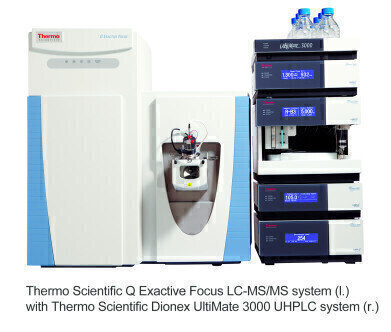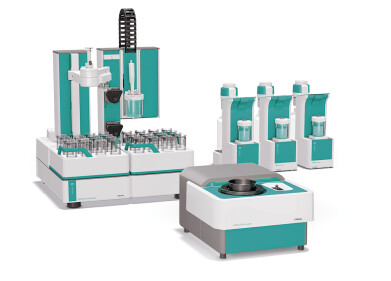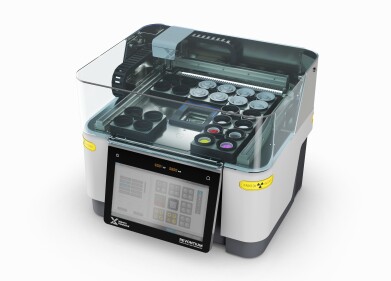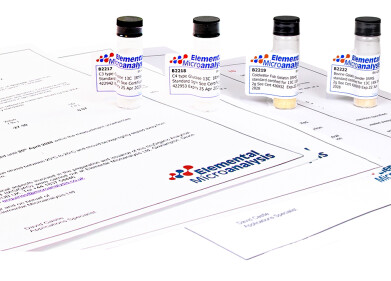Mass Spectrometry & Spectroscopy
New Orbitrap-Based Mass Spectrometer Makes High-Resolution Accurate-Mass Analysis Widely Accessible
Oct 23 2014
Laboratories performing food and environmental testing, clinical research, forensic toxicology, pharmaceutical/biopharmaceutical measurements, and other applied analyses can now benefit from the performance of high-resolution accurate-mass (HRAM) Orbitrap mass spectrometry using a new instrument designed for cost-per-sample-sensitive workflows.
The new Thermo Scientific Q Exactive Focus LC-MS/MS is designed to make the qualitative and quantitative power of Orbitrap-based instruments available to customers who use quadrupole time-of-flight (Q-TOF) mass spectrometry or other technologies.
“Many of our customers at applied and small scale research labs have been telling us they want the combined screening and quantitation capabilities of hybrid mass spectrometry in their labs, where cost per sample and time-to-results really matter,” said Ken Miller, Vice President, Marketing, Life Sciences Mass Spectrometry for Thermo Fisher Scientific. “We are pleased to announce that Orbitrap technology has now evolved into the Q Exactive Focus system for this purpose.”
The Q Exactive Focus benchtop LC-MS/MS combines high-performance quadrupole precursor ion selection with an HRAM Orbitrap mass analyser, providing excellent mass accuracy, sensitivity and fast polarity switching. This has been shown to selectively and accurately quantify and confirm analytes with comparable sensitivity to triple quadrupole instruments.
The Q Exactive Focus is designed to deliver up to 70,000 resolution at m/z 200, and scan speed up to 12 Hz. Sub ppm mass accuracy has been achieved routinely in company and early access user laboratories. The instrument is designed for quantitation experiments, with capabilities that include selected ion monitoring (SIM), parallel reaction monitoring (PRM), and data-independent acquisition (DIA).
Full scan confirmation mode and parallel reaction monitoring (PRM) are designed for targeted screening combined with reproducible quantitation results. Data-independent acquisition (DIA) provides qualitative coverage for screening unknowns with supporting quantitative data for many of the unknowns identified.
Digital Edition
Lab Asia 31.2 April 2024
April 2024
In This Edition Chromatography Articles - Approaches to troubleshooting an SPE method for the analysis of oligonucleotides (pt i) - High-precision liquid flow processes demand full fluidic c...
View all digital editions
Events
Apr 22 2024 Marrakech, Morroco
Making Pharmaceuticals Exhibition & Conference
Apr 23 2024 Coventry, UK
Apr 23 2024 Kintex, South Korea
Apr 23 2024 Seoul, South Korea
Apr 24 2024 Jakarta, Indonesia













.jpg)




